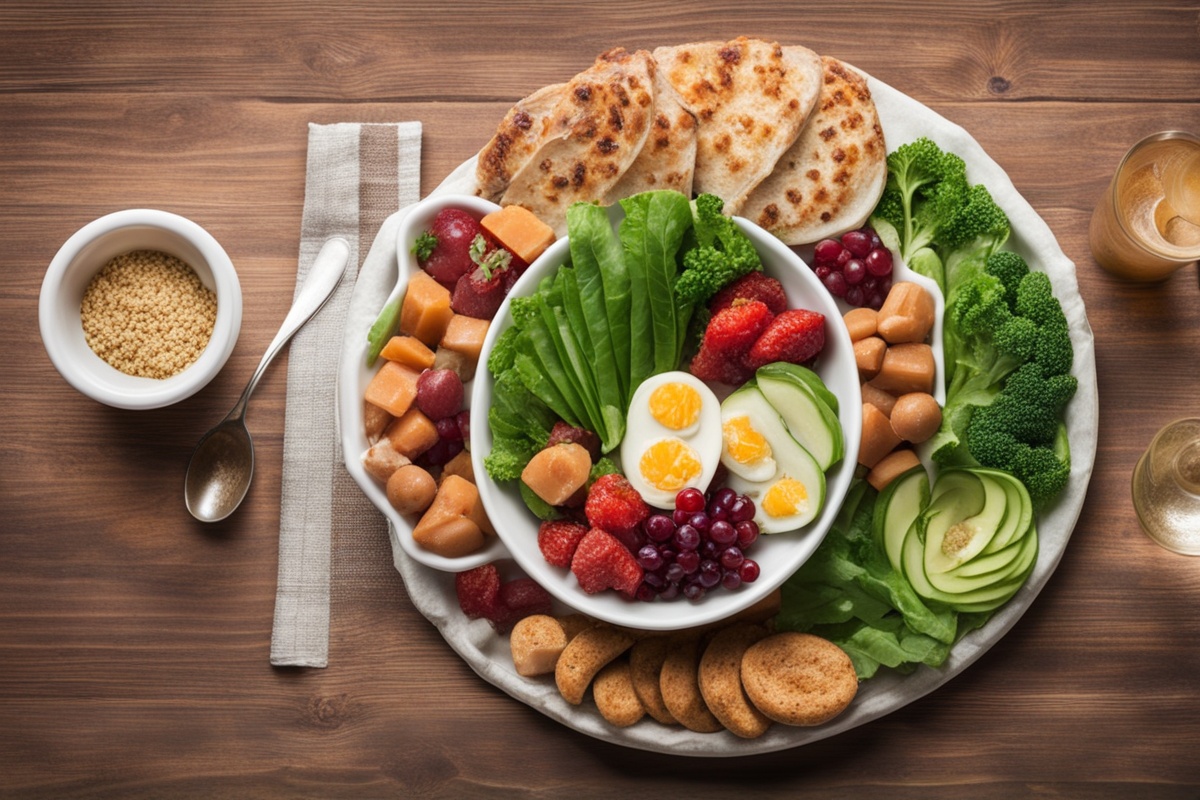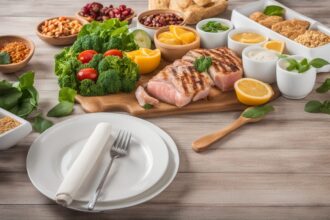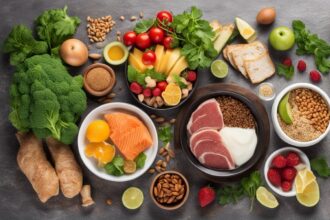Intermittent fasting has gained immense popularity as a flexible and sustainable approach to weight management and overall health improvement. However, one of the biggest challenges for those following intermittent diets is finding meals that are both nutritious and satisfying during eating windows. This post dives into healthy recipes for intermittent diets that are easy to prepare, nutrient-dense, and designed to keep you energized without breaking your fasting goals. Whether you’re new to intermittent fasting or a seasoned practitioner, these meal ideas will help you make the most of your eating periods.
What Makes a Recipe Suitable for Intermittent Diets?
Intermittent fasting (IF) involves cycling between periods of eating and fasting, such as the 16:8 method (16 hours of fasting, 8 hours of eating) or the 5:2 approach (eating normally for 5 days and restricting calories for 2 days). When crafting healthy recipes for intermittent diets, the focus should be on meals that provide sustained energy, support muscle maintenance, and prevent overeating. This means prioritizing high-protein foods, healthy fats, and complex carbohydrates while keeping processed sugars and empty calories to a minimum. Hydration is also key, so incorporating water-rich foods or herbal teas can be beneficial during eating windows.
Breakfast Ideas to Break Your Fast
Breaking your fast with a balanced meal is crucial to replenish energy and nutrients. Here are two healthy recipes for intermittent diets that are perfect for your first meal of the day:
- Avocado and Egg Toast: Spread half an avocado on a slice of whole-grain bread, top with a poached egg, and sprinkle with chia seeds for added fiber and omega-3s. This meal is rich in healthy fats and protein, keeping you full for hours.
- Greek Yogurt Parfait: Layer plain Greek yogurt with fresh berries, a handful of nuts, and a drizzle of honey. This high-protein option also provides antioxidants from the berries, supporting recovery after a fasting period.
These breakfast options are quick to prepare and align perfectly with the nutrient needs of intermittent fasting. For more breakfast inspiration, check out our post on Balanced Breakfasts for Fasting Lifestyles.
Lunch Recipes for Sustained Energy
During your eating window, lunch should be a hearty yet balanced meal to keep you fueled without causing a mid-day slump. Here are two lunch ideas tailored as healthy recipes for intermittent diets:
- Quinoa and Grilled Chicken Salad: Combine cooked quinoa with grilled chicken breast, mixed greens, cherry tomatoes, and a light olive oil and lemon dressing. Quinoa provides complex carbs for energy, while chicken offers lean protein for muscle repair.
- Lentil and Vegetable Soup: Simmer lentils with carrots, celery, and spinach in a low-sodium vegetable broth. Season with turmeric and cumin for anti-inflammatory benefits. This fiber-rich soup is filling and supports digestive health.
These lunch recipes are versatile and can be prepped in advance, making them ideal for busy schedules. Explore more meal prep tips in our guide to Meal Planning for Intermittent Fasting.
Dinner Options to End Your Eating Window
Dinner is often the last meal during an intermittent fasting eating window, so it should be satisfying yet not overly heavy. Try these healthy recipes for intermittent diets to close out your day:
- Baked Salmon with Asparagus: Bake a salmon fillet with olive oil, garlic, and lemon zest, alongside a side of roasted asparagus. Salmon is packed with omega-3 fatty acids, and asparagus adds fiber and vitamins.
- Turkey and Veggie Stir-Fry: Stir-fry lean ground turkey with bell peppers, zucchini, and broccoli in a low-sodium soy sauce or tamari. Serve over a small portion of brown rice for a balanced, protein-packed meal.
These dinner recipes focus on lean proteins and vegetables to promote satiety without overloading on calories. For more evening meal ideas, see our article on Light Dinners for Fasting Success.
Snacks for Intermittent Fasting
While snacking isn’t always necessary during intermittent fasting, having small, nutrient-dense options can help if hunger strikes during your eating window. Here are a couple of snack ideas that fit into healthy recipes for intermittent diets:
- Hard-Boiled Eggs: Prepare a batch of hard-boiled eggs for a quick, protein-rich snack. Pair with a handful of baby carrots for added crunch and vitamins.
- Almond Butter and Celery: Spread a tablespoon of almond butter on celery sticks for a satisfying mix of healthy fats and fiber. This snack helps curb cravings without derailing your fasting goals.
Keep portions small to avoid overeating, and always listen to your body’s hunger cues. For additional snack ideas, read our post on Quick Snacks for Fasting Windows.
Tips for Creating Your Own Healthy Recipes for Intermittent Diets
Designing your own meals for intermittent fasting can be rewarding and tailored to your tastes. Here are some tips to ensure your creations remain aligned with healthy recipes for intermittent diets:
- Prioritize Protein: Include a source of lean protein (chicken, fish, tofu, or legumes) in every meal to support muscle maintenance and fullness.
- Balance Macronutrients: Combine protein with healthy fats (avocado, nuts, olive oil) and complex carbs (sweet potatoes, quinoa, whole grains) for sustained energy.
- Limit Processed Foods: Avoid sugary snacks and refined carbs that can spike blood sugar and lead to cravings during fasting periods.
- Stay Hydrated: Drink plenty of water and incorporate hydrating foods like cucumber, watermelon, or broth-based soups into your meals.
Experiment with flavors and ingredients to keep your meals exciting. For more personalized fasting tips, check out our guide on Customizing Your Intermittent Fasting Plan.
Disclaimer: The information provided in this post is for general informational purposes only and should not be considered medical or dietary advice. Intermittent fasting may not be suitable for everyone, including pregnant or breastfeeding individuals, those with certain medical conditions, or individuals with a history of eating disorders. Always consult a healthcare professional or registered dietitian before starting any new diet or fasting regimen to ensure it is safe and appropriate for your individual health needs.
References
- Harvard Health Publishing – Intermittent Fasting: Surprising Update
- Mayo Clinic – Intermittent Fasting: What You Need to Know
- National Institutes of Health – Effects of Intermittent Fasting on Health and Aging
- Academy of Nutrition and Dietetics – What Is Intermittent Fasting?
- WebMD – Intermittent Fasting Overview
This content is for informational purposes only and not a substitute for professional advice.






